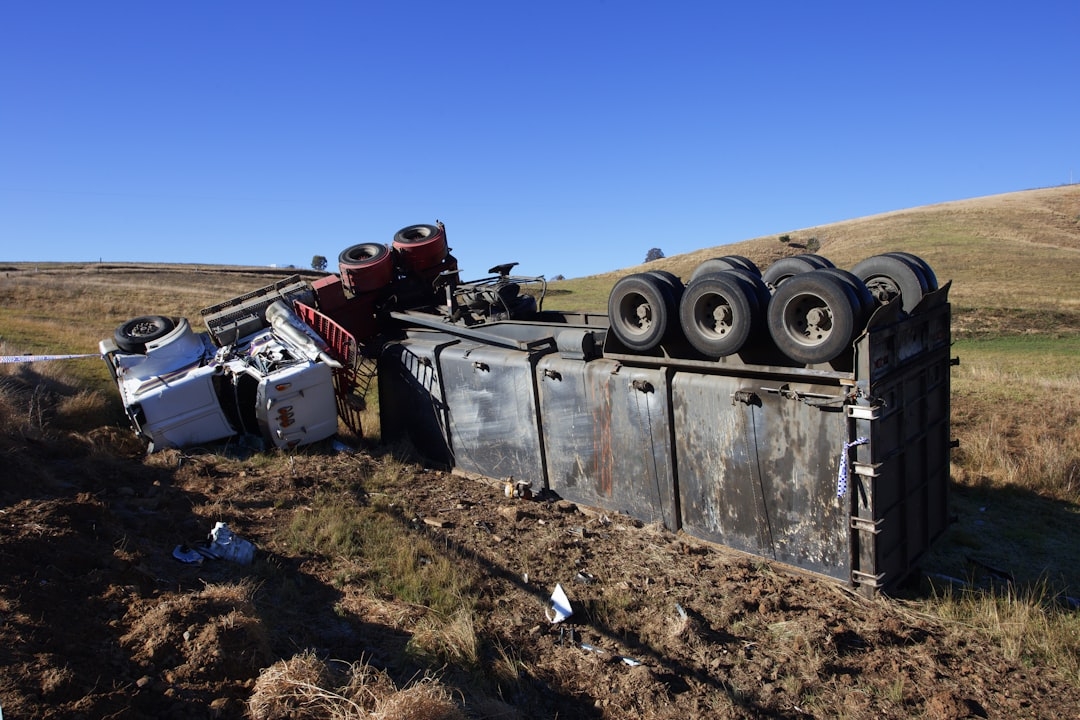

When a truck accident occurs in Seattle, determining liability can be complex due to the numerous parties that could potentially be held responsible. Understanding who may be accountable is crucial for victims seeking compensation for their injuries and damages. The key parties potentially liable in a truck accident case include the truck driver, the trucking company, the manufacturer of the truck or its parts, cargo loaders, and even government entities.
Firstly, the truck driver is often scrutinized when an accident occurs. If the driver was negligent-whether by driving under the influence, speeding, or failing to adhere to traffic laws-they can be held personally liable. Additionally, federal regulations require truck drivers to adhere to strict hours-of-service rules to prevent fatigue-related accidents. truck accident lawyer Seattle . Violation of these regulations can also establish liability.
Secondly, the trucking company that employs the driver can also be a significant party in a liability claim. Trucking companies are responsible for hiring qualified drivers and ensuring they receive proper training. If it's found that a company failed to conduct adequate background checks or ignored safety protocols, they could be held liable for negligence. Furthermore, if a trucking company encourages or pressures drivers to violate hours-of-service regulations or cut corners on maintenance due to unrealistic delivery schedules, they might share responsibility for any resulting accidents.
Another potential party is the manufacturer of the truck or its parts. Mechanical failures such as brake malfunctions or tire blowouts can lead to catastrophic accidents. If it's determined that a defect in manufacturing contributed to the crash, then the product manufacturer could face liability claims under product liability laws.
Cargo loaders also play a critical role in safe transportation practices. Improperly loaded cargo can shift during transit causing instability which might result in an accident. If investigations reveal that improper loading caused or exacerbated an accident, those responsible for loading could be held accountable.
Lastly, government entities might share some level of responsibility particularly if poor road conditions contributed significantly to an accident. Inadequate signage, faulty traffic signals, or poorly maintained roads could all serve as grounds for claiming governmental negligence.
In conclusion, identifying who is liable in a truck accident case in Seattle involves examining multiple potential factors and parties including the truck driver themselves; their employer; manufacturers of vehicles and parts; those involved with cargo loading; and even government bodies responsible for road maintenance and safety measures. Each party's actions-or lack thereof-can contribute towards establishing negligence and ultimately determining where responsibility lies for those affected by such tragic events.
The role of a truck driver encompasses much more than simply navigating highways and byways. Truck drivers are the lifeblood of commerce, delivering goods across vast distances, but with this crucial role comes a heightened degree of responsibility. In the context of Seattle's bustling urban landscape and intricate road networks, understanding these responsibilities is pivotal when determining liability in a truck accident case.
First and foremost, truck drivers are responsible for ensuring the safe operation of their vehicles. This involves conducting thorough pre-trip inspections to check for any mechanical issues that could compromise safety. These inspections cover critical components such as brakes, tires, lights, and coupling devices. Any oversight or negligence in this duty can lead to catastrophic failures on the road, placing both the driver and other road users at significant risk.
In addition to vehicle maintenance, truck drivers must adhere to strict regulations governing hours of service. Fatigue is a leading cause of truck-related accidents; thus, federal laws mandate rest periods to ensure drivers remain alert and capable of making sound decisions behind the wheel. Violating these regulations not only endangers lives but can also be a key factor in determining liability should an accident occur.
Moreover, navigating Seattle's roads requires acute awareness and adaptability from truck drivers. The city is known for its dense traffic patterns and frequent construction zones-areas where extra caution is necessary. Drivers must be adept at managing their speed, maintaining safe following distances, and anticipating the actions of other motorists to prevent accidents.
When a truck accident does occur in Seattle, determining liability can be complex due to the multiple parties involved. While the immediate focus often falls on the truck driver's actions leading up to the crash-such as speeding or distracted driving-it's essential to consider broader aspects like employer policies and vehicle maintenance records. For instance, if a trucking company pressures its drivers into unrealistic delivery schedules that encourage rule-breaking behavior or neglects proper vehicle maintenance protocols, they too may share liability.
Furthermore, manufacturers of truck parts may also be implicated if it's found that faulty equipment contributed to an accident despite regular maintenance by the driver or company. Therefore, establishing liability often requires meticulous investigation into various elements ranging from driver conduct and company practices to equipment reliability.
In conclusion, while truck drivers hold significant responsibility for ensuring safety on the road through diligent vehicle checks and adherence to regulations, they are but one piece in a larger puzzle when it comes to assigning liability in a truck accident case in Seattle. The interplay between driver actions, employer policies, regulatory compliance, and equipment integrity all contribute to understanding who is ultimately at fault. As such cases unfold within Seattle's legal framework, each layer must be carefully examined to deliver just outcomes for those affected by these often devastating incidents.
Navigating the labyrinth of Washington State's trucking laws and regulations can be daunting, especially in the aftermath of a truck accident.. At the heart of this complex legal terrain lies the role of a Seattle truck accident lawyer, whose expertise becomes indispensable for those seeking justice and compensation. Truck accidents often result in severe injuries and significant property damage due to the sheer size and weight of commercial trucks.

Posted by on 2024-09-16
When faced with the aftermath of a truck accident in Seattle, finding affordable legal representation can be a daunting task.. Legal services often come with high price tags, but there are ways to navigate this terrain without breaking the bank.
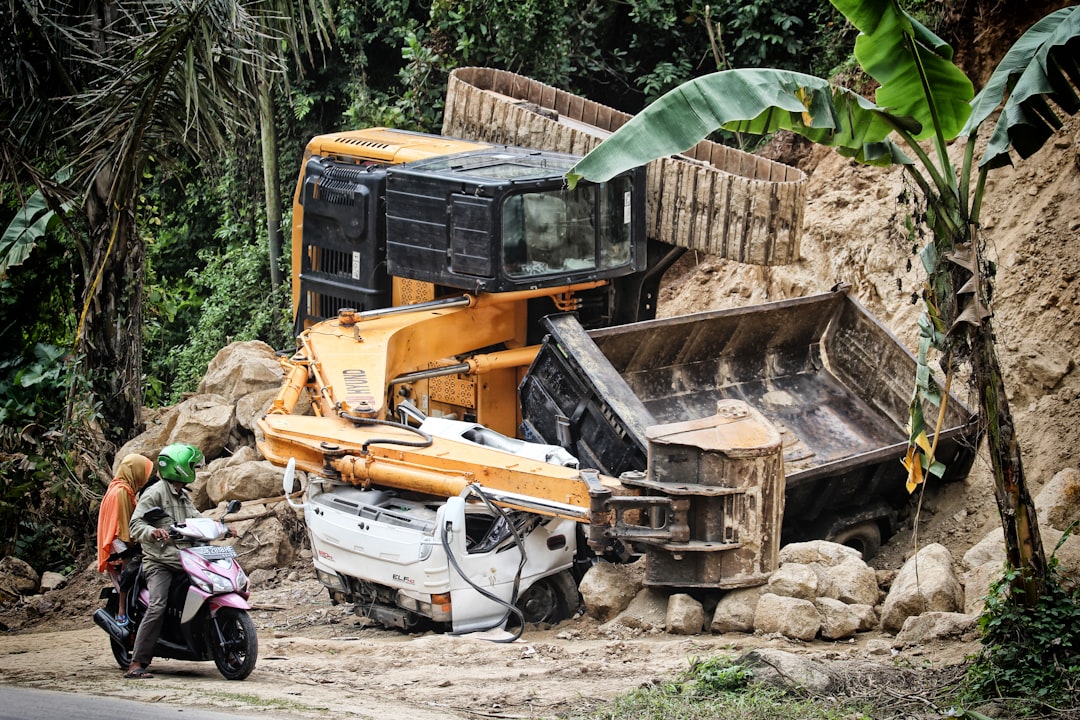
Posted by on 2024-09-16
Navigating the aftermath of a truck accident can be a daunting experience, especially when it comes to filing a claim.. A Seattle truck accident lawyer can guide you through this intricate process, ensuring that you pursue the right steps to secure fair compensation.
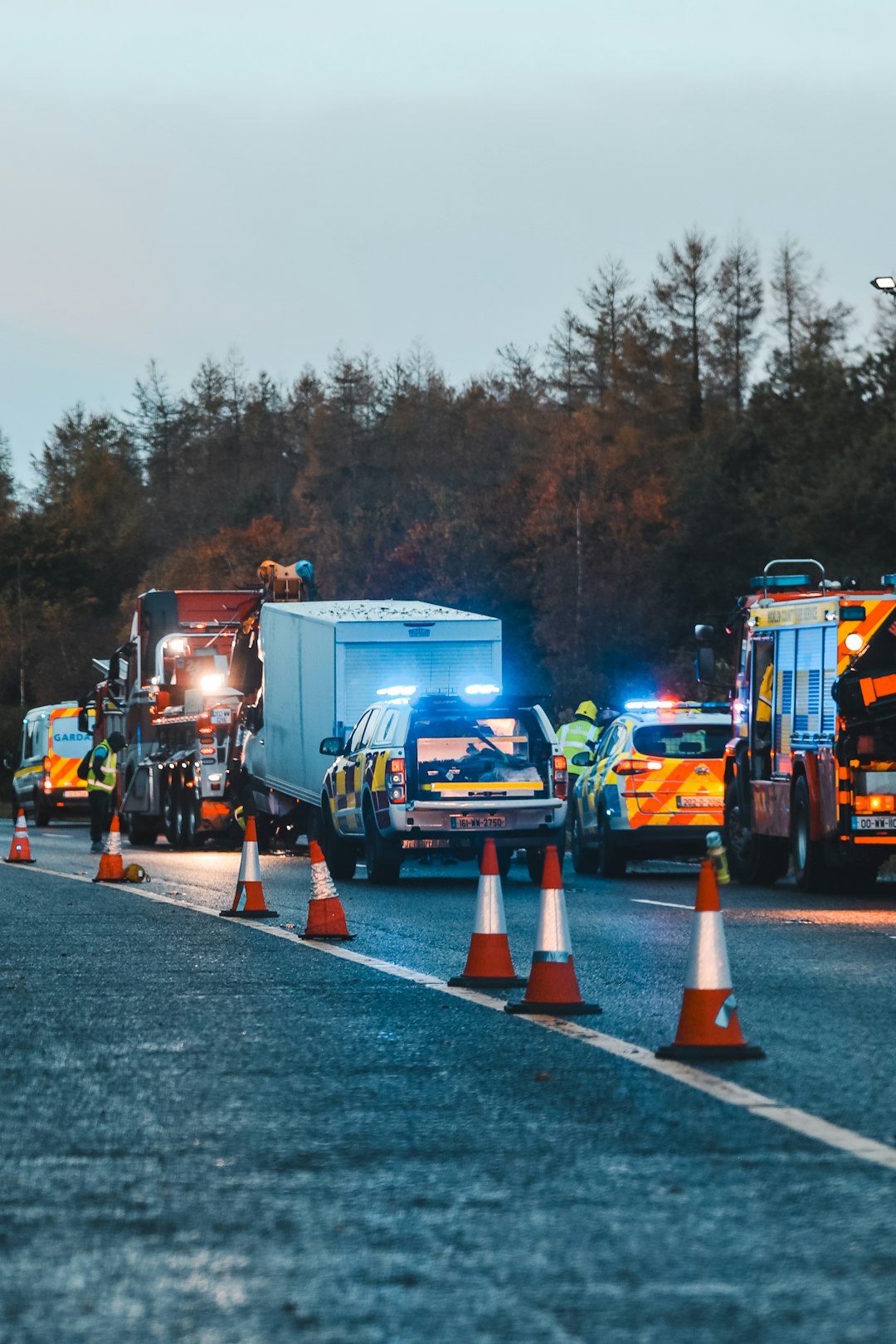
Posted by on 2024-09-16
Navigating the aftermath of a truck accident can be an overwhelming and complex journey, particularly when you're facing physical injuries, emotional distress, and financial burdens.. One of the primary concerns for victims in such situations is how to maximize their settlement with legal assistance.

Posted by on 2024-09-16
When facing the aftermath of a truck accident in Seattle, finding the best lawyer to represent your case can make a significant difference in the outcome.. Truck accidents often result in severe injuries and substantial financial losses, making it crucial to have an experienced and reliable attorney by your side.
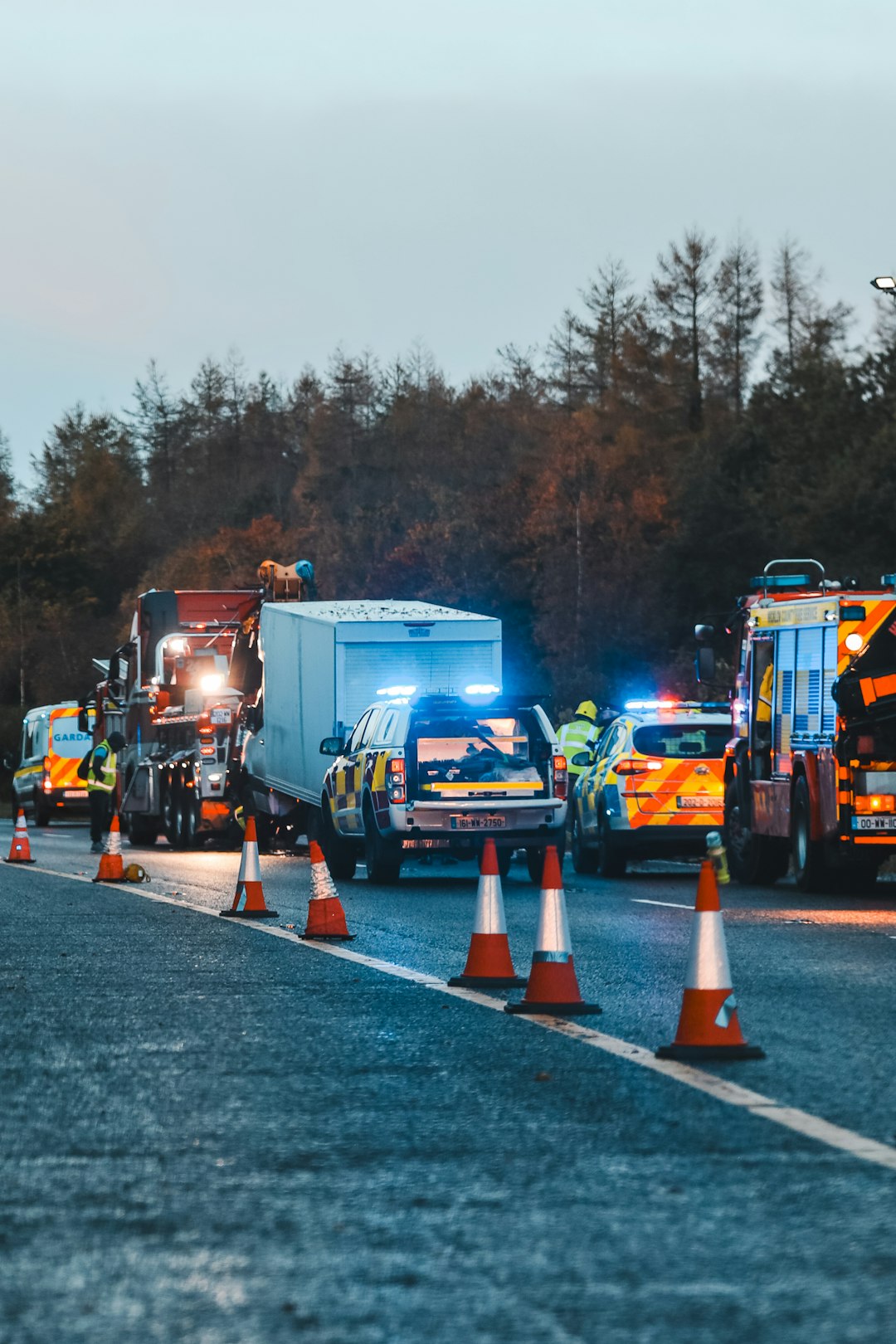
Posted by on 2024-09-16
In Seattle, as in many other jurisdictions, determining liability in a truck accident case can be complex and multifaceted. The trucking company often finds itself at the center of these legal inquiries due to various factors that contribute to their potential culpability.
First and foremost, trucking companies are responsible for ensuring that their vehicles are in safe operating condition. This means they must adhere to strict maintenance schedules and conduct regular inspections. Failure to do so can lead to mechanical failures such as brake malfunctions or tire blowouts, which could cause severe accidents. If it is found that a lack of proper maintenance was a contributing factor in the accident, the trucking company could be held liable.
Moreover, the trucking company has a duty to hire qualified drivers who are capable of safely operating large commercial vehicles. Part of this responsibility includes conducting thorough background checks and ensuring that drivers have the appropriate licenses and training. If an accident occurs because a driver was unfit or improperly trained, the company may be held accountable for negligent hiring practices.
Another critical aspect involves compliance with federal regulations governing hours of service. These regulations are designed to prevent driver fatigue by limiting the number of hours a truck driver can operate without taking mandatory breaks. If it is discovered that a trucking company encouraged or forced its drivers to violate these regulations, leading to fatigue-related accidents, liability would likely fall on the company for promoting unsafe driving conditions.
Additionally, cargo loading plays a significant role in truck safety. Improperly loaded or overloaded trucks pose serious risks on the road. The trucking company is responsible for ensuring that cargo is secured correctly and does not exceed weight limits. In instances where shifting cargo contributes to an accident, liability may extend to the trucking company if negligence in cargo handling is proven.
Insurance coverage also comes into play when assessing liability. Trucking companies typically hold large insurance policies due to the substantial damage potential associated with commercial truck accidents. These policies often cover damages beyond what individual drivers might afford, making it more practical for victims seeking compensation.
Lastly, vicarious liability principles can apply where employers are held responsible for their employees' actions performed within the scope of employment. If a truck driver causes an accident while performing job duties under normal circumstances, the trucking company will generally share in liability due to this legal doctrine.
In summary, several factors contribute to determining a trucking company's liability in Seattle truck accident cases: vehicle maintenance responsibilities, hiring practices, adherence to safety regulations regarding driver hours and cargo loading procedures all come under scrutiny during investigations. Given these complexities, both victims and defendants benefit from expert legal representation familiar with local laws and federal regulations governing commercial transportation industry standards.
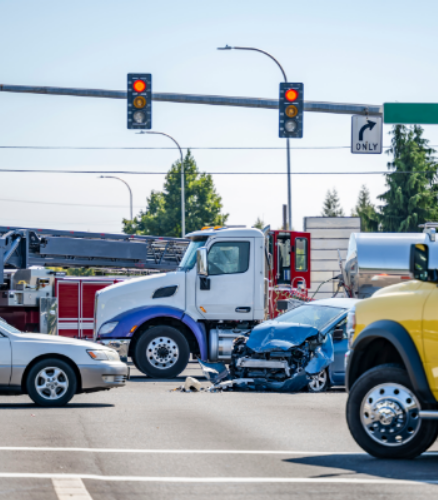
When it comes to determining liability in truck accident cases in Seattle, the focus often extends beyond just the driver. Vehicle manufacturers and maintenance providers can also play pivotal roles in establishing who is ultimately responsible for the mishap. The impact of these entities on liability can be significant, especially when defects or poor maintenance contribute to an accident.
Firstly, vehicle manufacturers have a duty to ensure that their trucks are safe and free from defects. This duty encompasses everything from the design phase to the final production and distribution of the vehicle. When a truck has a manufacturing defect such as faulty brakes, steering issues, or engine problems, it can lead to catastrophic accidents. If it is proven that a manufacturing defect caused or contributed to a truck accident in Seattle, the manufacturer could be held liable for damages under product liability laws. Plaintiffs would need to demonstrate that the defect existed at the time of manufacture and directly led to the incident.
Similarly, maintenance providers bear significant responsibility in keeping trucks roadworthy. Commercial trucks undergo rigorous usage and require regular inspections and upkeep to remain safe on the roads. Maintenance providers must adhere to stringent standards when performing repairs or routine checks. Negligence in this area-such as failing to properly inspect brake systems, overlooking tire wear and tear, or using substandard replacement parts-can result in mechanical failures that precipitate accidents.
In instances where poor maintenance is identified as a contributing factor in a truck accident case in Seattle, liability may shift towards these service providers. For example, if an investigation reveals that worn-out brake pads were not replaced during scheduled maintenance despite clear indications of wear, this oversight could form a strong basis for holding the maintenance provider accountable.
It's also worth noting that both vehicle manufacturers and maintenance providers often work closely with trucking companies. As such, there can be intertwined responsibilities among different parties involved in operating commercial vehicles. In complex cases where multiple factors contribute to an accident-including driver error compounded by mechanical failure-the courts might allocate proportional liability among all responsible entities.
In summary, when seeking justice after a truck accident in Seattle, it's crucial not only to scrutinize driver behavior but also consider whether any faults lie with vehicle manufacturers or maintenance providers. These entities have specific obligations toward ensuring vehicle safety; any breaches of these duties can significantly affect determinations of liability. Understanding this broader landscape helps victims pursue comprehensive claims that address all facets of negligence contributing to their harm.
In the bustling city of Seattle, the logistics and transportation industry serves as the lifeline for countless businesses and consumers. Central to this intricate web are cargo loaders and shippers, whose meticulous work ensures that goods reach their destinations safely and efficiently. However, when a truck accident occurs, determining liability can become a complex legal puzzle. This essay explores the legal considerations for cargo loaders and shippers in such scenarios, focusing on who is liable in a truck accident case in Seattle.
First and foremost, it's essential to understand the multifaceted nature of liability in a truck accident. Unlike straightforward car accidents involving two private individuals, truck accidents often involve multiple parties with various responsibilities. In Seattle, as elsewhere in the United States, liability is typically determined based on negligence that is, whether any party failed to exercise reasonable care that resulted in harm.
Cargo loaders play a critical role by ensuring that goods are packed securely and distributed evenly within the truck. Improper loading can lead to disastrous consequences; an unbalanced load may cause a rollover, while unsecured items can shift during transit leading to loss of control. If an investigation reveals that improper loading was a contributing factor to the accident, then the cargo loaders or their employers could be held liable. They have a duty of care to ensure that all safety protocols are followed meticulously.
Similarly, shippers bear significant responsibility when it comes to truck accidents. Shippers are responsible for accurately declaring what is being transported including hazardous materials which require special handling and documentation according to federal regulations. If a shipper fails to provide accurate information or neglects necessary precautions for hazardous materials resulting in an accident, they could be found negligent and thus liable for damages.
Another critical point involves adherence to federal regulations set forth by agencies such as the Federal Motor Carrier Safety Administration (FMCSA). Both shippers and carriers must comply with these regulations designed to promote road safety. Non-compliance can be used as evidence of negligence in court proceedings following an accident.
It's also worth noting joint liability scenarios where multiple parties share fault. For instance, if both improper loading by cargo handlers and inadequate maintenance by trucking companies contributed to an accident's occurrence or severity both entities might be held accountable proportionally based on their degree of fault.
Given these complexities surrounding liability determination post-accident insurance becomes another pivotal aspect influencing outcomes significantly within legal frameworks governing commercial transport operations like those prevalent across Seattle's jurisdictional scope.
In conclusion: Who is liable in a truck accident case isn't always clear-cut but depends largely upon careful examination regarding adherence towards established duties encompassing safe operational practices amongst involved stakeholders including but not limited solely unto Cargo Loaders & Shippers alone especially considering intricacies tied around regulatory compliance paradigms too thus necessitating comprehensive legal scrutiny aimed at ensuring just resolution benefiting affected victims equitably overall!
Determining Fault: Evidence and Investigation Procedures for Who is Liable in a Truck Accident Case in Seattle
When it comes to truck accident cases in Seattle, determining who is liable can be a complex process involving multiple parties and extensive investigations. The stakes are high; truck accidents often result in severe injuries or even fatalities, and the financial implications for medical bills, property damage, and lost wages can be substantial. Therefore, accurately identifying the responsible party or parties is crucial for ensuring justice and fair compensation.
The determination of fault begins with meticulous evidence collection at the accident scene. Law enforcement officers are typically among the first to arrive, and they play a key role in gathering initial information. This includes taking photographs of the scene, noting road conditions, weather factors, vehicle positions, and any visible damage. Statements from witnesses are also collected to provide a comprehensive view of what transpired.
Beyond initial police reports and eyewitness accounts, more specialized forms of evidence are often required. For instance, commercial trucks are equipped with electronic logging devices (ELDs) that record data such as speed, braking patterns, and hours of service. This data can be instrumental in reconstructing events leading up to the accident. Additionally, maintenance records can reveal whether mechanical failures contributed to the crash.
In many cases, third-party experts such as accident reconstruction specialists may be brought in to analyze the physical evidence further. These professionals use scientific principles to recreate the accident scenario digitally or through scale models to determine factors like point of impact and vehicle trajectory.
Liability may not rest solely with one individual; multiple parties can share responsibility depending on their roles. The truck driver might be liable due to negligent driving behaviors such as fatigue or distraction. The trucking company could also bear responsibility if it failed to enforce safety regulations or maintain its fleet adequately. Even manufacturers might be held accountable if defective parts played a role in causing the accident.
Legal procedures involve scrutinizing all these facets meticulously. Attorneys representing injured parties will delve into driver logs, employer records, inspection reports, and other relevant documents during discovery-a pre-trial phase aimed at gathering detailed information from all involved entities.
Seattle's legal framework adds another layer of complexity due to state-specific laws governing traffic violations and liability standards. Washington follows a comparative negligence rule where fault can be distributed among multiple parties based on their respective contributions to the incident. This means that even if an injured party bears some responsibility for the accident, they may still recover damages proportionate to their level of fault.
To navigate these intricacies effectively requires seasoned legal expertise combined with thorough investigative practices. It's not enough simply to establish that an accident occurred; proving liability demands a compelling narrative constructed from irrefutable evidence gathered through rigorous investigation methods.
In conclusion, determining fault in a truck accident case in Seattle is an elaborate process requiring coordinated efforts between law enforcement agencies, legal professionals, forensic experts-and sometimes even federal regulators overseeing commercial transportation standards. Each piece of evidence plays a pivotal role in painting an accurate picture of what led up to the unfortunate event and who should ultimately be held accountable for its consequences. Through diligent investigation and robust legal strategies, justice can prevail for those affected by these devastating occurrences.